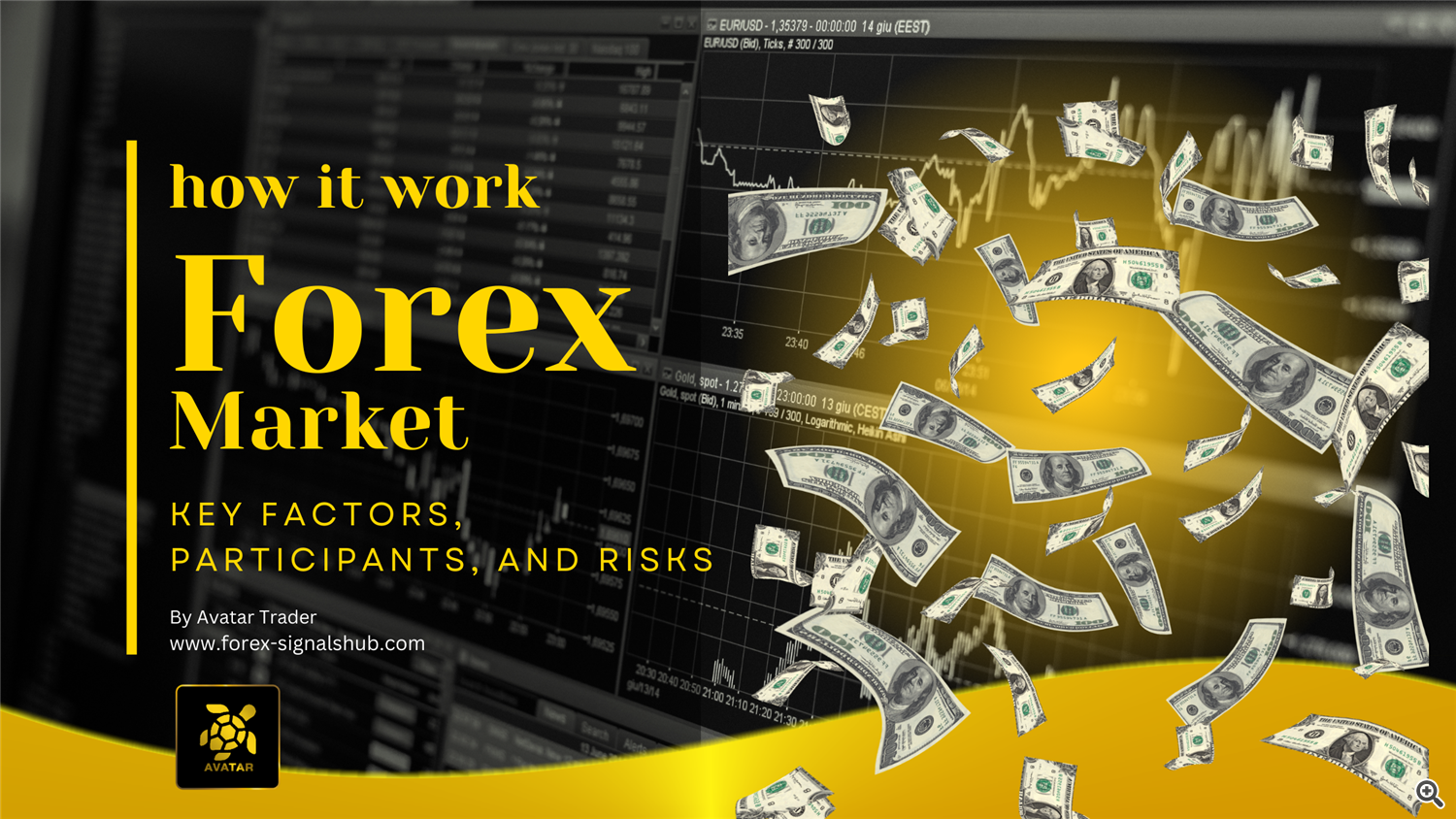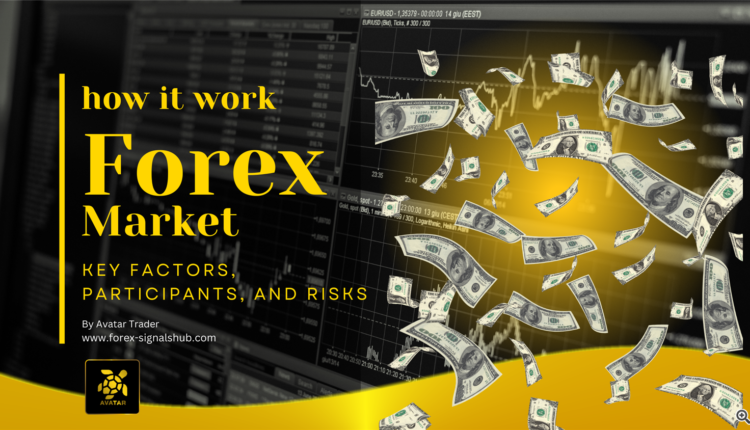Forex Market: Key Factors, Major Participants, and Risks – Trading Strategies – 21 November 2023

AVATAR TRADING HOUES
The foreign exchange (Forex or FX) market is a global financial marketplace where currencies are traded around the clock. It’s the largest and most liquid market in the world, with a daily trading volume exceeding $6 trillion. Understanding the intricacies of the Forex market is essential for traders and investors. In this article, we’ll delve into the key factors influencing currency movements, the primary participants in the market, and the inherent market risks.
Key Factors Influencing Currency Movements
Currency exchange rates are constantly in flux, influenced by a multitude of factors. Here are some of the key drivers:
- Economic Indicators: Economic data, such as Gross Domestic Product (GDP), employment figures, inflation rates, and trade balances, profoundly impact a country’s currency value. Positive economic data can strengthen a currency, while negative data can weaken it.
- Interest Rates: Central banks set interest rates, which have a direct effect on currency values. Higher interest rates tend to attract foreign capital, boosting a currency’s value. Conversely, lower interest rates can lead to depreciation.
- Government Policies: Fiscal and monetary policies implemented by governments can influence currency values. For example, lowering interest rates or engaging in quantitative easing can weaken a currency, while fiscal discipline can strengthen it.
- Political Stability: Political stability and the perception of a country’s political strength can affect investor confidence and currency values. Political turmoil can lead to currency depreciation.
- Market Sentiment: Market sentiment and speculation play a role in short-term currency fluctuations. News, events, and geopolitical developments can trigger rapid movements.
- Market Liquidity and Trading Volume: Liquidity and trading volume vary throughout the day. Higher volume and liquidity can lead to more stable and predictable price movements.
- Trade Balance: A country’s trade balance (exports vs. imports) can affect its currency value. A trade surplus can lead to currency appreciation, while a deficit can lead to depreciation.
Key Participants in the Forex Market
The Forex market is a decentralized marketplace with various participants who influence its dynamics:
- Commercial Banks: Large banks provide services to corporate clients and engage in proprietary trading.
- Central Banks: Central banks, such as the Federal Reserve and the European Central Bank, set monetary policy and may intervene in the Forex market.
- Investment Banks: Investment banks facilitate trading and provide research services to institutional clients.
- Hedge Funds: Hedge funds engage in speculative trading to seek profits. They often trade in large volumes.
- Retail Traders: Individual traders participate via online platforms. They speculate on currency price movements and employ various strategies.
- High-Frequency Traders (HFTs): HFT firms use algorithms and high-speed technology for rapid trading.
- Market Makers: Market makers offer bid and ask prices to provide liquidity.
- Corporations: Multinational corporations use Forex markets to manage currency risk related to international business operations.
Market Risk in Forex Trading
Market risk in Forex trading refers to the potential for financial losses due to adverse currency movements. It includes:
- Currency Exchange Rate Risk: Risk associated with unfavorable moves in exchange rates.
- Volatility Risk: High volatility can lead to rapid price changes.
- Leverage Risk: Amplification of losses when using leverage.
- Market Events and News Risk: Economic announcements, geopolitical events, and market sentiment can cause unexpected price fluctuations.
- Black Swan Events: Unpredictable and rare events, such as financial crises, can significantly impact the market.
To manage market risk, traders employ risk management techniques like stop-loss orders, diversification, proper position sizing, and staying informed about market events. Having a well-defined trading strategy and understanding the factors influencing currency movements are crucial for navigating the complex world of Forex trading.
In conclusion, the Forex market is a dynamic and multifaceted marketplace influenced by economic, political, and market-related factors. Various participants interact within this vast market, each contributing to its liquidity and volatility. While market risk is inherent in Forex trading, traders can mitigate it through sound risk management practices and a deep understanding of the market’s intricacies. Success in Forex trading requires a combination of knowledge, strategy, and discipline.
Source : www.forex-signalshub.com
Powered by Avatar Trading House
At Avatar Trading House, we don’t just offer signals – we provide a path to prosperity and a bridge between generations.
![]()


Comments are closed.